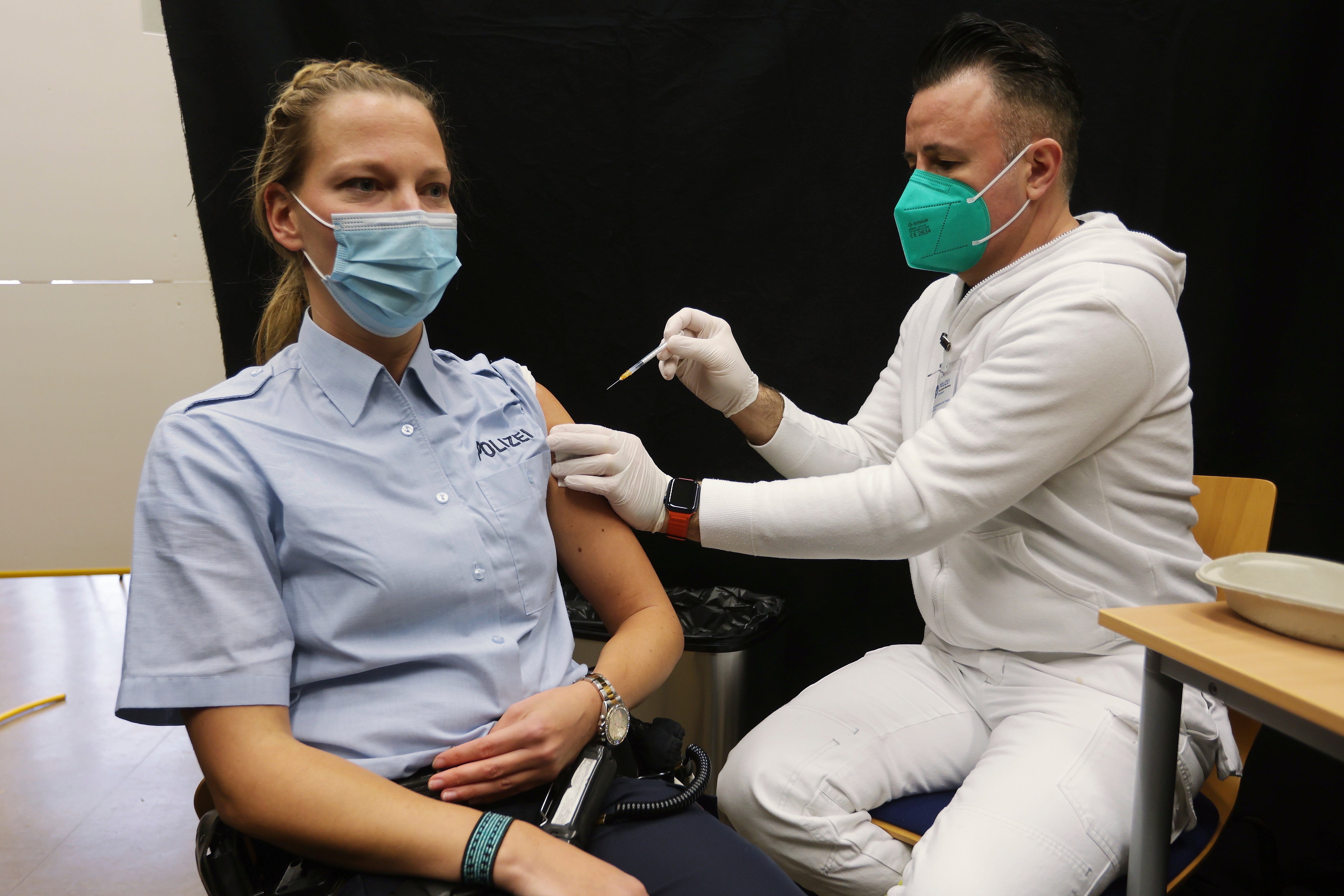Germany could make vaccines mandatory from early next year
‘The situation is our country is serious,’ said Angela Merkel
Your support helps us to tell the story
From reproductive rights to climate change to Big Tech, The Independent is on the ground when the story is developing. Whether it's investigating the financials of Elon Musk's pro-Trump PAC or producing our latest documentary, 'The A Word', which shines a light on the American women fighting for reproductive rights, we know how important it is to parse out the facts from the messaging.
At such a critical moment in US history, we need reporters on the ground. Your donation allows us to keep sending journalists to speak to both sides of the story.
The Independent is trusted by Americans across the entire political spectrum. And unlike many other quality news outlets, we choose not to lock Americans out of our reporting and analysis with paywalls. We believe quality journalism should be available to everyone, paid for by those who can afford it.
Your support makes all the difference.German Chancellor Angela Merkel said Thursday that people who are not vaccinated will be excluded from nonessential stores, cultural and recreational venues, and parliament will consider a general vaccine mandate, as part of an effort to curb coronavirus infections that again topped 70,000 newly confirmed cases in a 24-hour period.
Speaking after a meeting with federal and state leaders, Merkel said the measures were necessary in light of concerns that hospitals in Germany could become overloaded with people suffering covid-19 infections, which are more likely to be serious in those who haven't been vaccinated.
“The situation is our country is serious,” Merkel told reporters in Berlin, calling the measure an “act of national solidarity.”

Germany’s disease control agency reported 73,209 newly confirmed cases on Thursday. The Robert Koch Institute also reported 388 new deaths from covid-19, taking the total since the start of the pandemic to 102,178.
Roughly 68.7 per cent of the population in Germany is fully vaccinated, far below the minimum of 75 per cent the government is aiming for. She said officials also agreed to require masks in schools, impose new limits on private meetings and aim for 30 million vaccinations by the end of the year.
Merkel also said that parliament will debate the possibility of imposing a general vaccine mandate that would come into force as early as February.
Finance minister Olaf Scholz, who is expected to be elected chancellor by a centre-left coalition next week, said this week that he backs a general vaccine mandate, but favours letting lawmakers vote according to their personal conscience.
The rise in covid-19 cases over the past several weeks and the arrival of the new omicron variant have prompted warnings from scientists and doctors that medical services in the country could become overstretched in the coming weeks unless drastic action is taken.
Some hospitals in the south and east of the country have already transferred patients to other parts of Germany because of a shortage of intensive care beds.
Europe is currently facing a surge in coronavirus cases forcing nations in the region to tighten restrictions. From Saturday 4 December, France will require all visitors from countries outside the EU to provide a negative Covid test result on entry to the country, regardless of vaccination status.
Meanwhile, Austria’s national lockdown which started on 22 November as been extended until at least 11 December, amid early data signalling the current restrictions are working to curb coronavirus spread.
Ursula von der Leyen this week said discussion is needed on making vaccines mandatory in Europe.
She made the comments as the commission urged the EU27 countries to rapidly roll out booster vaccines. “If you look at the numbers, we have now 77 per cent of the adults in the European Union vaccinated or if you take the whole population, it’s 66 per cent. And this means one-third of the European population is not vaccinated. These are 150 million people,” she said.
“How we can encourage and potentially think about mandatory vaccination within the European Union, this needs discussion. This needs a common approach, but it is a discussion that I think has to be met,” the EU head added.

Join our commenting forum
Join thought-provoking conversations, follow other Independent readers and see their replies
Comments